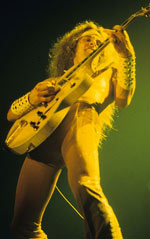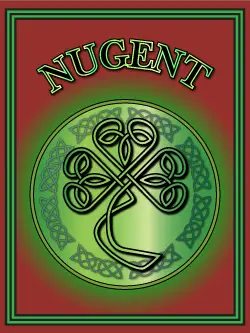Nugent is a popular name in Ireland, and also Britain, America and Australia.
Its origins can be traced back to around the 11th century, the time of the Norman Empire.
The Normans generally took their names from the place that they were from. One powerful Norman family was named de Nogent, after the northern French town Nogent-sur-Oise.
Several members of the de Nogent family were high ranking officers in the army of William the Conqueror. When the Normans successfully invaded Britain in 1066, William handed out titles and large territories to his most loyal soldiers.
The de Nogent family was given a large estate in Winchester in the south of England.
Just over a hundred years later, the de Nogents had spread across the south of England. They were still a highly respected family and included senior officers in the now Anglo-Norman Army.
It was in 1172 that the name de Nogent first arrived in Ireland, certainly the first major influx of the name.
Strongbow, a powerful Norman knight, had arrived in Ireland a few years earlier and formed an alliance with Dermot Mac Murrough, the King of Leinster.
A strong alliance in the east of Ireland
Henry II of England worried that this alliance could become a threat to his rule, so ordered an invasion to stamp his authority on Ireland.
Hugh de Nogent was one of the leading Norman soldiers that went across and seized land in Ireland. He and his army settled in County Westmeath. One of the de Nogent family, Sir Gilbert de Nogent, then married the daughter of Hugh de Lacy.
This meant he inherited much of the neighbouring County Meath when Hugh de Lacy died. This gave the de Nogents a large territory in the east of Ireland.
The de Nogents remained a powerful family. They built several castles to fortify their position and defend their lands. The family spread across Ireland and mixed with the native Celtic tribes.
In time, the name evolved into de Nugent and then dropped the ancient Norman prefix ‘de’ to become just Nugent.
When the British invaded Ireland again in the 17th century, the Nugents had their lands taken from them. The British took written records of people’s names so that they could be taxed efficiently.
These records were taken by English clerks who would write down the name as it sounded to them. Because this is based on any individual’s interpretation, several spellings of Nugent were recorded including Nogent, Newgent and Neugent.
The name Nugent, and its variations, travelled to America, Canada and Australia when vast numbers of Europeans began to explore and settle in the ‘new world’ in the 18th and 19th centuries. More than a million of these settlers were Irish people escaping the ‘Great Famine’ in the mid-1800s.
Famous Nugents

Michael Nugent is an Irish writer and campaigner. He co-wrote the musical theatre production I, Keano, which was a Roman warrior spoof of the story of Roy Keane walking out on the Irish football team just days before the World Cup in 2002.

Nugent’s book Dear John was a best-seller in Ireland. It was a collection of correspondence between his fictional character ‘John’ and the Irish Taoiseach Albert Reynolds. ‘John’ was seeking support from the country’s leader for a grant to help launch his business of producing dog bowls that looked like dinner plates.
Nugent is also a member of Atheism Ireland, an organisation that believes peace and happiness can be achieved without religion, although they are tolerant to let people believe in whatever they choose.
Mike Nugent was an Australian Paralympian. He won six medals, including two golds, between 1980 and 1988 in races from 200m to 1500m. He is now retired from competitive athletics and runs a wheelchair manufacturing company.
Ted Nugent is an American rock musician. He found fame as the lead guitarist of The Amboy Dukes. Nugent then left the band to pursue a solo career and had big hits in the 1970s with songs such as Stranglehold and Wango Tango.
Jim Jefferies is an Australian stand-up comedian and writer. His real name is Geoff James Nugent.
David Nugent is an English professional footballer. He made his debut for England in 2007 and scored in the last minute of the game, making him one of a select group of players for England with a cap one goal international record.
